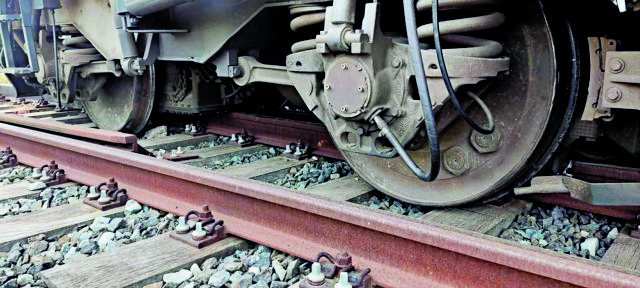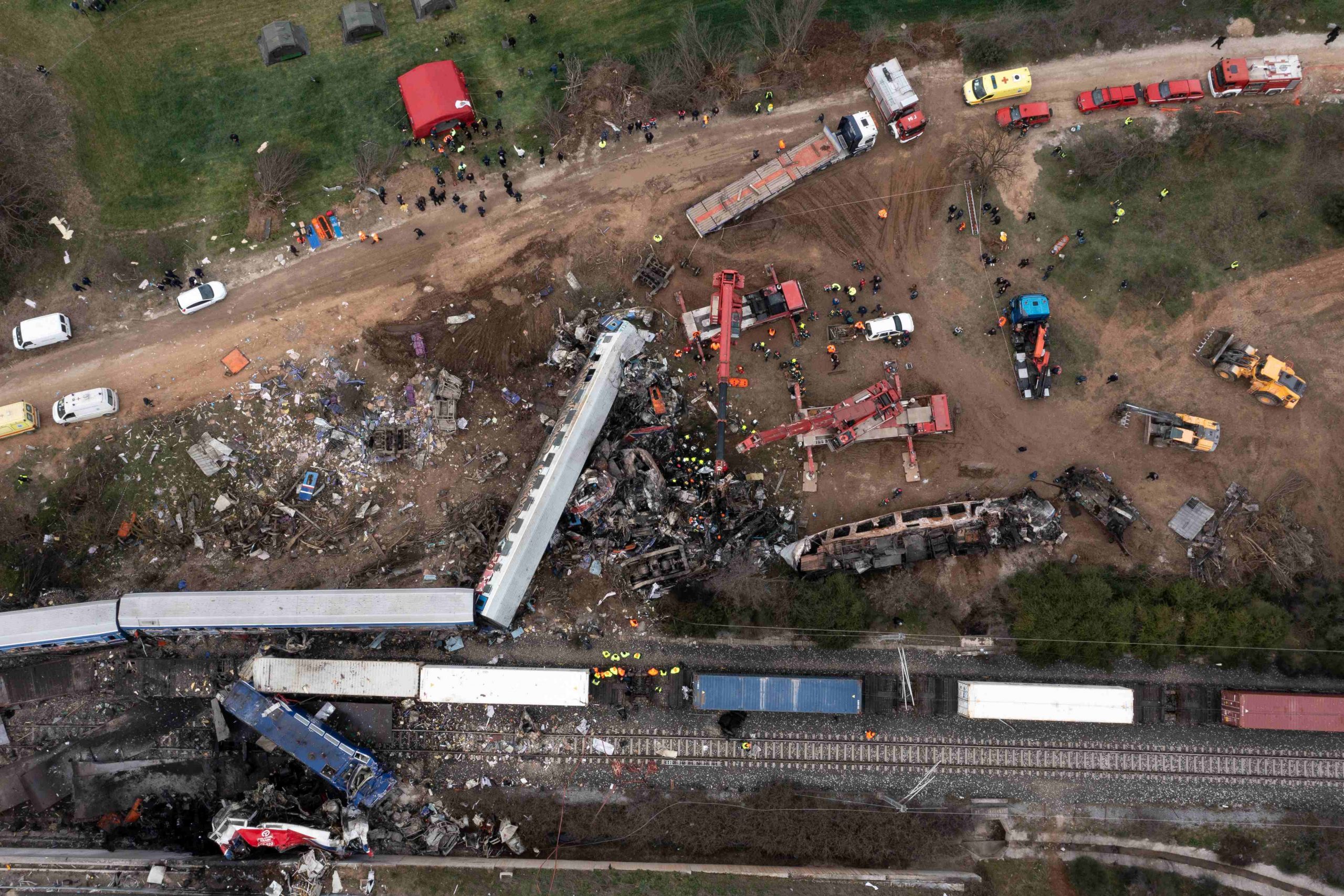The Greek government ignored calls by the European Public Prosecutor’s Office (EPPO) to take action against two former transport ministers for potential criminal liability in the fatal Tempi train crash of last year, according to a report this morning by Politico.
The report cites a letter sent by EPPO prosecutor Popi Papandreou last June 2 to the Greek authorities.
In Papandreou’s letter she wrote, “suspicions have arisen regarding alleged criminal offences committed by former members of the Greek Government…These alleged criminal offences regard breach of duty committed by the former Minister Christos Spirtzis and misappropriation committed by former Minister Konstantinos Karamanlis.”
The prosecutor said, “We ask for you (Greece) to take your own actions.”
Papandreou said to Politico that the case against Karamanlis involves, “‘the crime of misappropriation against the financial interests of the European Union and the Greek State, from which the damage caused exceeds a total of €120,000’ in relation to repairs and upgrades of rail signals and switches.”
The Politico report explains that according to Greek law, only the Parliament can conduct investigations into allegations of misconduct against former ministers, and that the “Greek government buried the case politically, however, by using its parliamentary majority to dismiss the need for an investigative committee.”
“The EPPO case file on Spirtzis and Karamanlis was referred to the Greek Supreme Court, and from there to the Greek Parliament…In November, Parliament considered whether to set up a preliminary investigative committee for former ministers, including Spirtzis and Karamanlis. The center-left Pasok party referred to EPPO’s findings during the debate and supported the idea. Ultimately, however, the proposal was rejected and the case was archived.”
EPPO has told Politico that the Greek constitution may contravene EU law and that the issue is widely known in the Commission, but it is unclear if anything will be done about it.
Following the train crash, Prime Minister Mitsotakis initially attributed the crash to “tragic human error,” which offended public opinion as independent investigations showed widespread knowledge that the Hellenic railway system was characterized by mismanagement and chronic operational and safety issues.
Since the crash, Spirtzis, who served under the left-wing government of Syriza and was reportedly in favor of opening an investigation into the crash, was not reelected. Karamanlis, meanwhile, resigned after the crash but was reelected in the northern Greece region of Serres.
The Tempi Train Crash
On February 23, 2023 at 11:21pm a head-on collision occurred between two trains in Greece in an area known as Tempi, which resulted in the deaths of at least 57 persons, most of which were students in their 20’s returning to Thessaloniki after a holiday weekend. It was the deadliest railway disaster in the history of Greece.
The accident occurred 27 km north of Larissa when the InterCity62 passenger train heading from Athens to Thessaloniki left Larissa station a bit delayed on the southbound track, which was the same track that a freight train traveling from Thessaloniki to Athens was on.
According to statements by the Greek government, “tragic human error” played a key role in the crash when the stationmaster at Larissa, who was new to the job, allowed the train to travel on the wrong track and even pass through red stop signals.
The place where the accident occurred had double tracks and was equipped with automatic controls, but the process was still being managed manually and the stationmaster had ordered his assistant not to “turn the keys” which would have realigned the track and avoided the collision.




